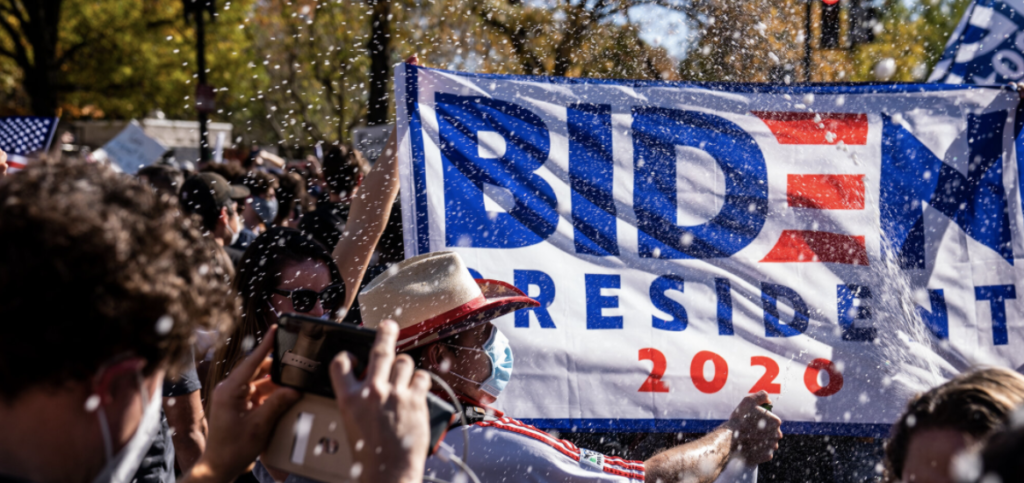
by Gara LaMarche
I want to take a few moments to talk about an aspect of the recent election, and of our work together as progressives, that we don’t usually deal with, caught up as we are in strategy, tactics, numbers, messaging, mobilization, persuasion and all the other elements of the art and science of winning.
What I am talking about is emotion. Maybe this is on my mind today because I am in the glow of the many lovely things people in our community have written or said to me since I announced yesterday that I am stepping down as DA President. I have feelings! But what am I talking about in a political context?
To an unhealthy and unsustainable extent, our very psyches have been occupied by the election, and indeed by the whole wretched Trump Presidency. Normally for most of us, how we feel on any given day, leaving aside chemistry – our levels of joy and anxiety, well-being and fear – is driven mostly by our immediate world: our marriages, relationships, families, work, health and finances.
For some, our emotional ups and downs can also be affected by how our team might be doing, or what’s happening on our favorite TV binge. Of course the state of the larger world comes into our daily feelings, and for those of us as engaged as we are in the Democracy Alliance, who grew up in or grew into a social justice tradition, it must. There is too much suffering and inequality, bigotry and pain in the world, too much that must be changed.
But a monster like Trump, along with his sycophants and enablers in the Republican Party, explodes whatever balance we may have had. We’ve spent four years outraged and at times numbed by every tweet, every lie, every act of cruelty, racism and corruption. We can’t look away, and against our will we develop a perverse addiction. We worried, with good reason, that democracy as we know it wouldn’t survive Trump’s Presidency. For years, we have walked around with a heavy weight upon us, even if things were going well in our family and our work. We woke up at 3 am with a knot in our stomachs. And with Trump’s consistently despicable behavior since the election, many of us still do. We have lived in a reality show we could not turn off.
This has taken a huge toll on everyone. I am not for a minute comparing the toll I am describing to the damage that Trump has wrought to families missing a loved one at the table due to COVID or immigration raids. It is of a different order. But the fear and anxiety about our country, the huge disruption to our sense of the world and the future that so many of us feel is real, and can’t be dealt with only by submerging it into the work – one more phonebank, one more online donation, one more march. Even as we celebrate getting rid of Trump, even as we feel the huge relief that poured out into the streets a week ago Saturday, we reckon with the cost of his Presidency in myriad ways, including the hold he has had on our heads. It will take a while. We need to acknowledge it and talk about it.
More generally, think about the way emotions have figured into our last several elections. The hope of Obama’s Yes We Can in 2008. The fear that Trump stirred up in 2016. The empathy, in such deep contrast with our callous current President, that radiates from Joe Biden.
We won, yet we feel a qualified joy. Not just because many challenges lie ahead in the wreckage left by Trump and the razor-thin margins we will be dealing with in Congress. But because many of us in the DA and Blue America feel more and more that we are living in a different country than the one we thought we lived in. I’m pretty sure, particularly given the defeat of Trump, whether they accept that or not, that voters on the other side are feeling the same thing. I think that is why, despite the fact that we did what we had to do in this critical election – send Trump packing – many of us continue to feel a nagging disquiet, making it hard for us to own our victory.
I understand that these feelings of estrangement from much of our own country are largely the privilege of those of us who were not locked out of voting for most of American history, who have not been subjected to harassment and violence with an impunity that is only recently and much too slowly beginning to crack. What is happening is that sense of estrangement is now more widely shared.
I’m not arguing here for firing all the pollsters – though I’m sure I’m not the only one who is exasperated by two critical cycles of underperformance – or that emotion is everything. But leaders touch deep chords in us, indeed different parts of the hearts and brains of our increasingly divided country. We would do well to try to better understand the chords they touch in us, in our communities, and in those whose vision of America is very different than the one we cherish.